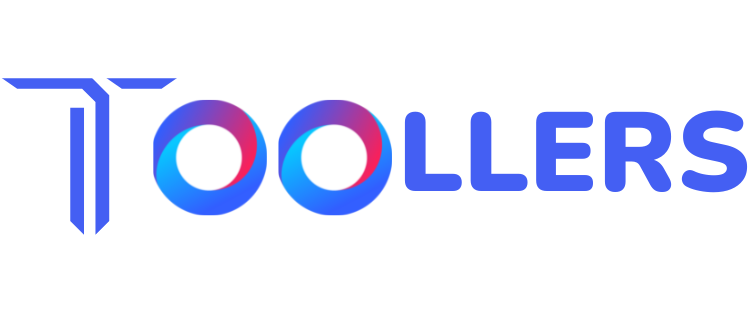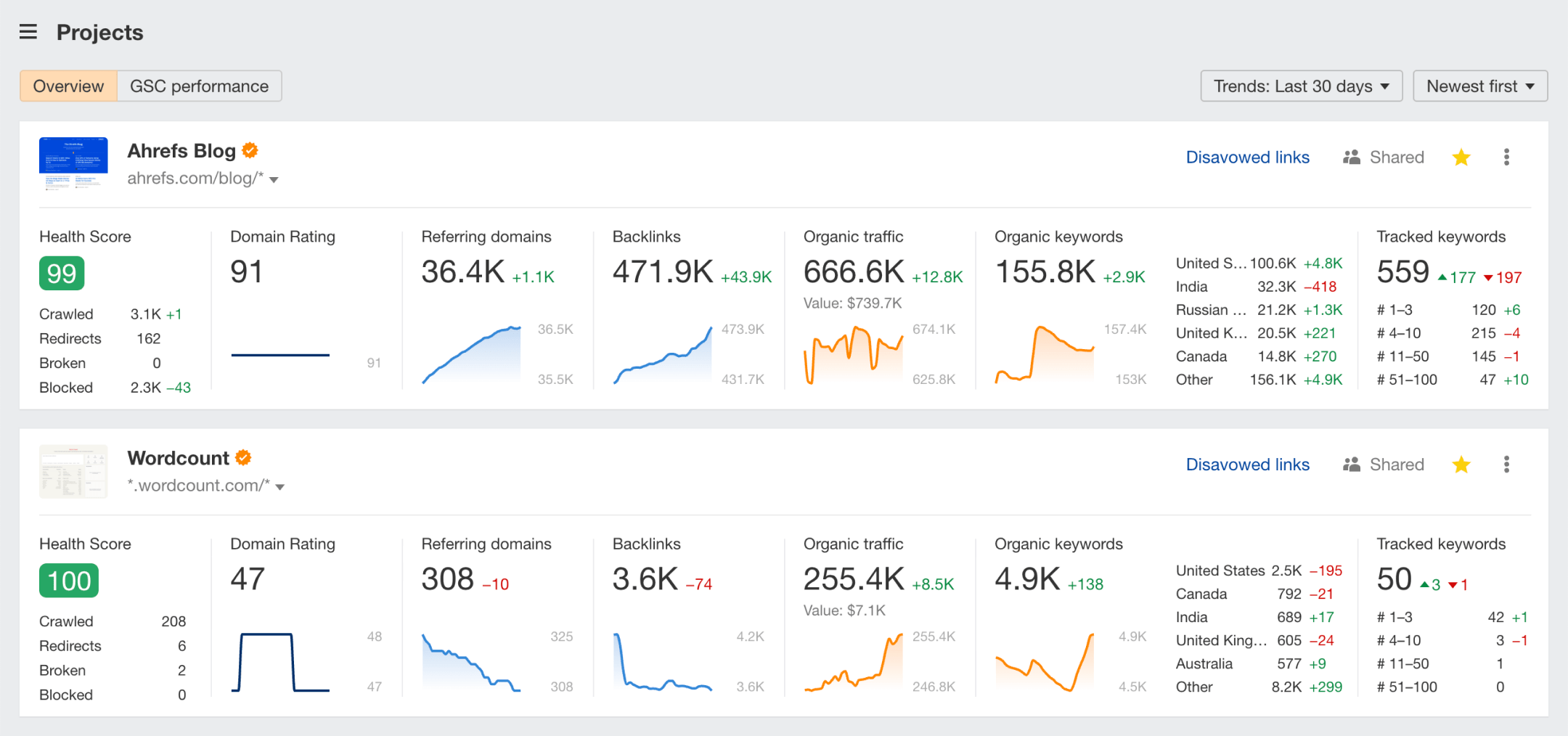Search engine optimization (SEO) has become the backbone of digital marketing in today’s fast-paced online world. According to a 2024 report by HubSpot, over 60% of businesses say SEO is their top source of leads and traffic. As digital marketing strategies continue to evolve, businesses are increasingly relying on SEO tools to enhance their website visibility, improve search rankings, and ensure they remain competitive.
The role of SEO analysis tools goes beyond keyword research. They help you uncover technical issues, track competitors, and refine your content strategy. As we step into 2025, the SEO landscape is evolving rapidly, with new algorithms and trends emerging. Staying ahead requires not just expertise but also the right set of tools. In this guide, we’ll explore the top 7 SEO tools that are shaping the future of search engine optimization and how they can help you achieve your digital marketing goals.
Top 7 SEO Tools in 2025
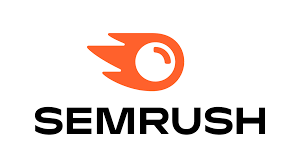


G2 Rating: The ratings are sourced from G2 as of the latest available data.
Pricing: Pricing is based on entry-level plans. Please visit each tool's official website for the most up-to-date pricing.
Key Features: A quick list of notable features offered by each CRM.
Call to Action (CTA): Directs users to the respective free trial or starting point for each tool.
1. LinkWhisper
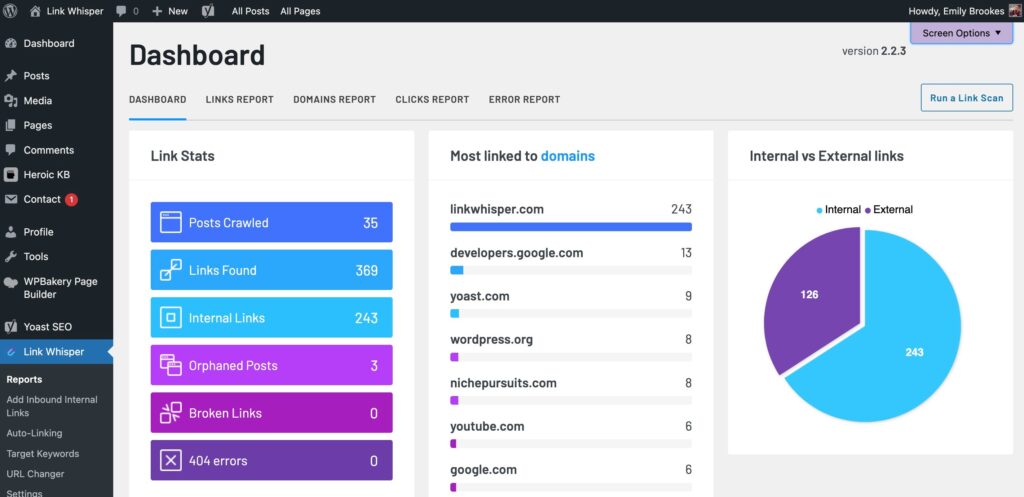
LinkWhisper is a powerful SEO tool focused on automating internal linking. It simplifies the complex process of managing internal links, which is crucial for website structure and SEO performance.
Features:
- Automated internal linking suggestions
- Link structure reports
- Optimizes SEO for internal pages
- Keyword-based link recommendations
- Saves time by automating internal linking
- Improves website structure for SEO
- Easy-to-use interface
- Limited to internal linking (does not cover other SEO aspects like backlink analysis)
- Relatively new tool with fewer integrations
Pricing:
- 1 Site License: $97/Annum
- 3 Site License: $167/Annum
- 10 Site License: $217/Annum
Ideal For:
Websites looking to streamline their internal linking and improve internal SEO without manual effort.
2. SEMrush
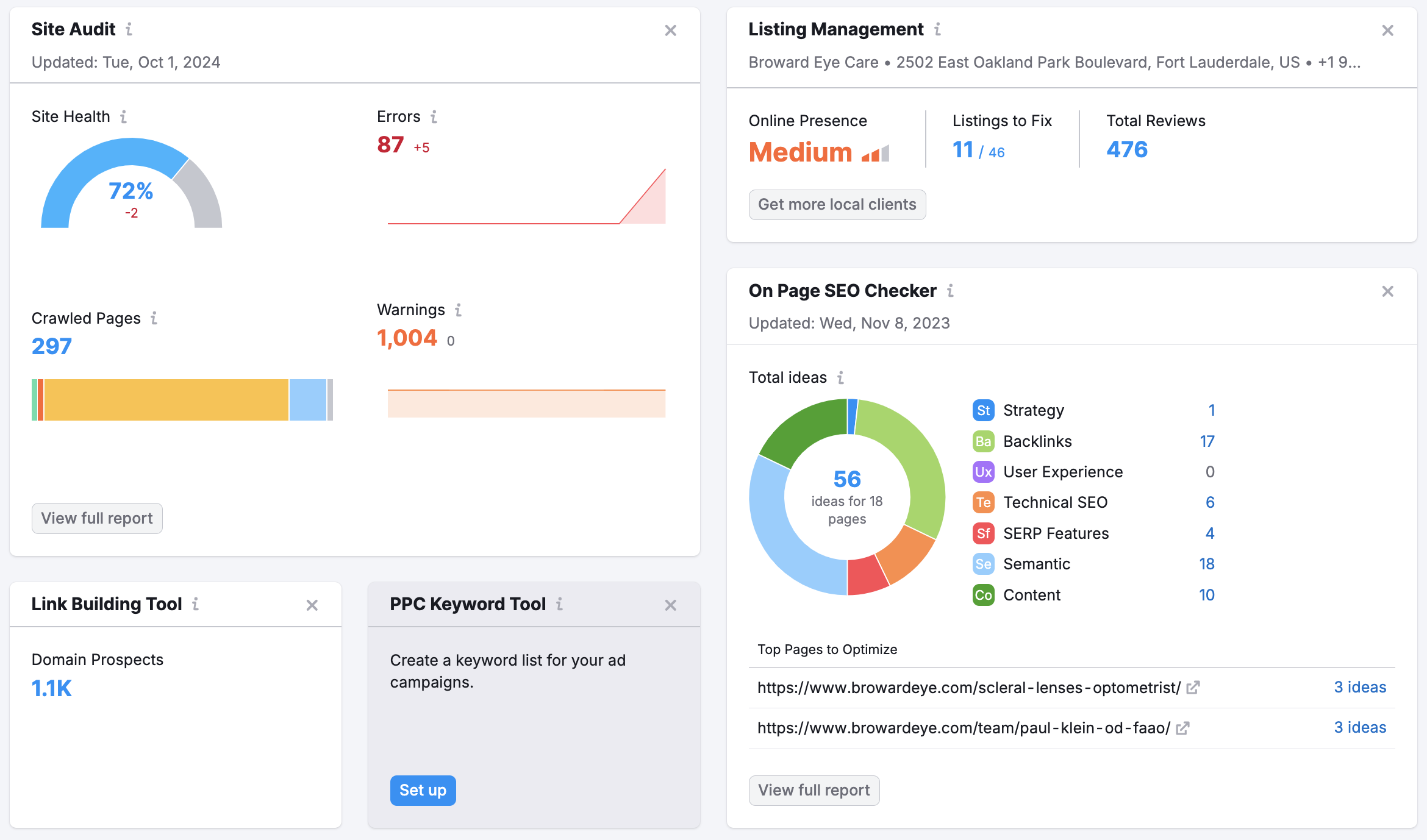
SEMrush is an all-in-one SEO platform known for its powerful features in keyword research, backlink analysis, competitive research, and website audits. It is perfect for both beginners and advanced users.
Features:
- Keyword research and tracking
- Backlink analysis and monitoring
- Competitor analysis
- Site audit and reporting
- Comprehensive set of features
- Strong competitor analysis tools
- Ideal for content marketing strategies
- Price may be prohibitive for small businesses
- Can be overwhelming for beginners due to its wide range of features
Pricing:
- Pro: $139/Month
- Guru: $249/Month
- Business: $499/Month
Ideal For:
Digital marketers, agencies, and businesses looking for an all-in-one SEO tool for in-depth analysis and strategy.
3. Ahrefs
Ahrefs is one of the most trusted tools in the SEO world, particularly known for its backlink analysis. It is widely used by agencies and advanced SEO professionals for its deep link data and content analysis.
Features:
- Backlink analysis and monitoring
- Site audit and health checkups
- Keyword research and content gap analysis
- Rank tracking and SEO reports
- Excellent backlink tracking
- Detailed content gap analysis
- High-quality link data
- Steeper learning curve for beginners
- Expensive compared to other tools
Pricing:
- Lite: $149/Month
- Standard: $249/Month
- Advance: $449/Month
Ideal For:
Advanced SEO professionals and agencies that need in-depth analysis of backlinks, keyword research, and site performance.
4. Moz Pro
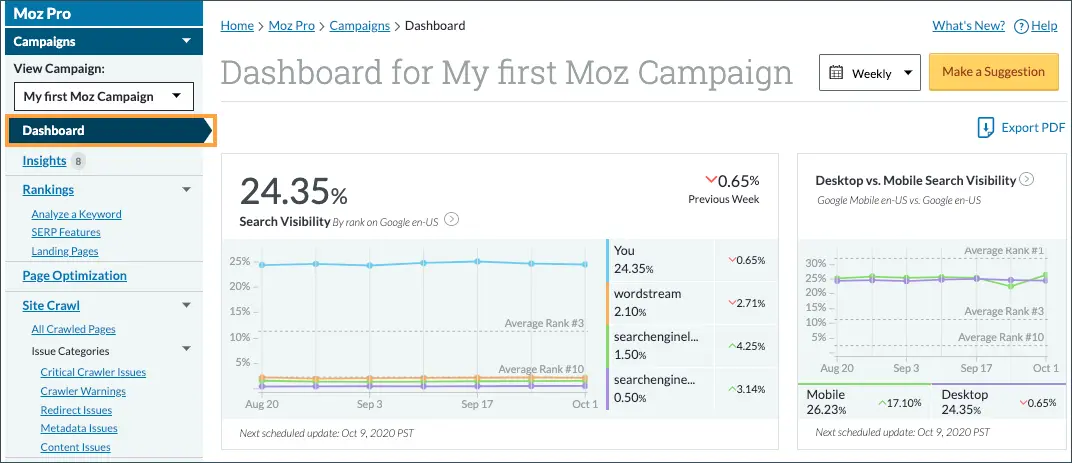
Moz Pro is known for its user-friendly interface and range of features that make it a great choice for small businesses and those new to SEO. It simplifies SEO tasks such as keyword research, site audits, and tracking rankings.
Features:
- Keyword Explorer
- Link Explorer for backlink tracking
- Site crawl and audit
- Rank tracking and keyword recommendations
- Great for beginners and small businesses
- Easy-to-use interface with comprehensive guides
- Affordable pricing compared to other tools
- Some features are less advanced compared to competitors
- Can be slower with large-scale data analysis
Pricing:
- Starter: $49/Month
- Standard: $99/Month
- Medium: $179/Month
- Large: $299/Month
Ideal For:
Small to mid-sized businesses and beginners who want a simple, affordable SEO solution.
5. Google Search Console
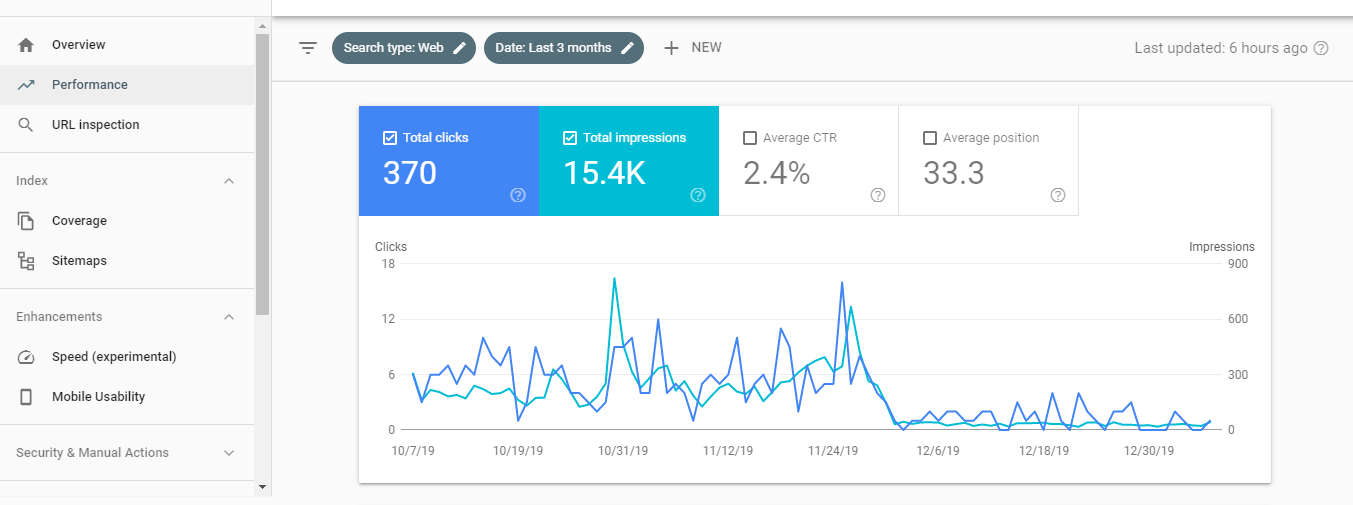
Google Search Console (GSC) is a free SEO tool directly from Google. It provides essential insights into your website’s performance, search visibility, and health.
Features:
- Search analytics and click-through rates
- URL inspection and reporting
- Core Web Vitals monitoring
- Search performance tracking
- Completely free tool
- Provides data directly from Google
- Essential for tracking website health and search performance
- Limited to Google’s search data (doesn’t cover other search engines)
- More technical in nature, requiring basic SEO knowledge
Pricing:
Free
Ideal For:
Website owners and marketers who want to monitor website performance and fix technical SEO issues directly in Google Search.
6. SE Ranking
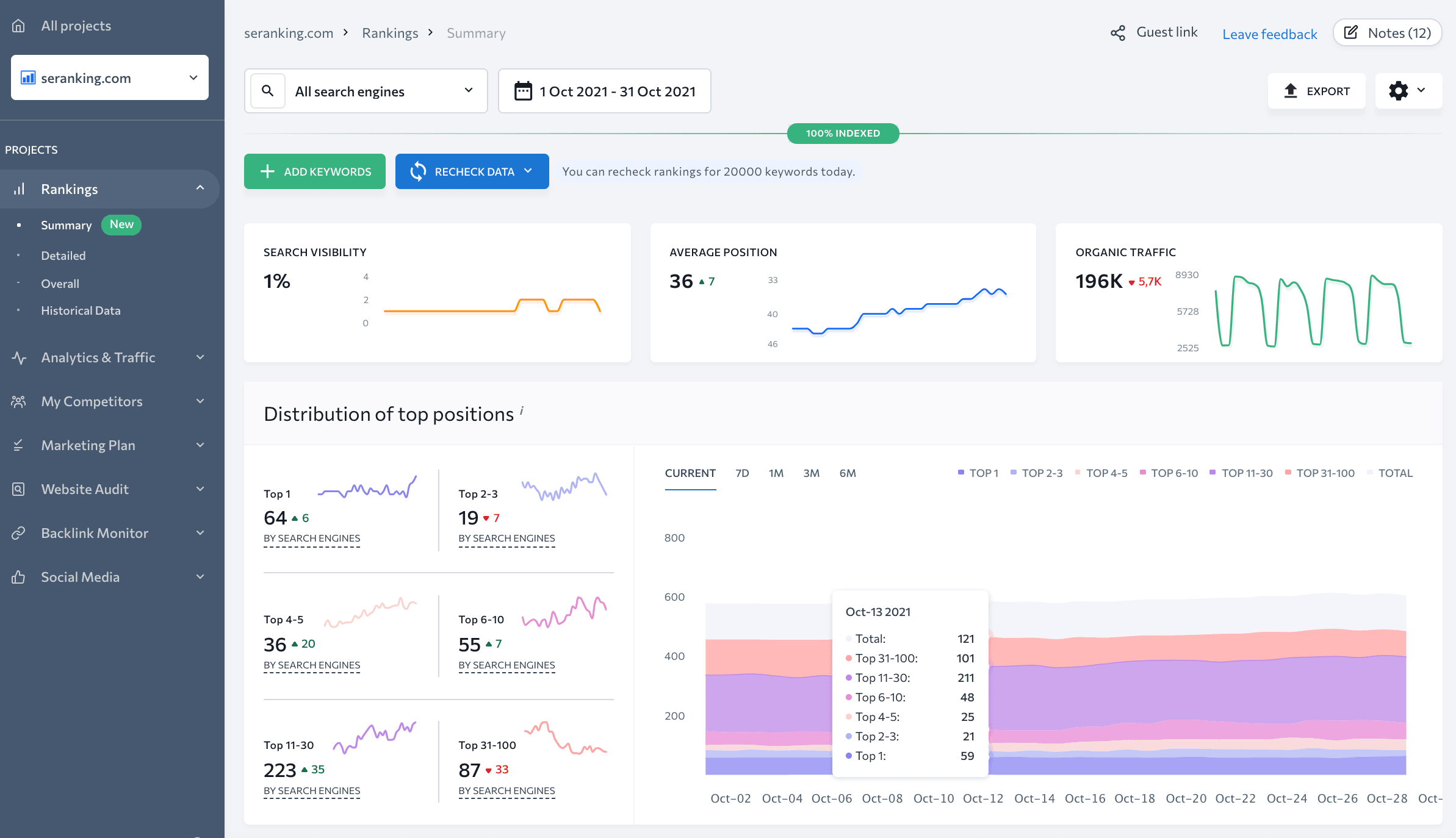
SE Ranking is a budget-friendly SEO tool offering a complete set of features, from keyword tracking to website audits. It is an excellent choice for freelancers and small businesses that need solid SEO tools without breaking the bank.
Features:
- Keyword tracking and analytics
- Website audit with recommendations
- Competitor analysis and backlink monitoring
- Reporting and white-label features
- Affordable pricing plans
- Easy-to-use interface
- Good range of SEO features for small businesses
- Lacks some advanced features found in pricier tools
- The reporting system could be more customizable
Pricing:
- Essential: $52/Month
- Pro: $95/Month
- Business: $207/Month
Ideal For:
Small businesses, freelancers, and those with limited SEO budgets looking for an affordable, all-in-one tool.
7. Surfer SEO
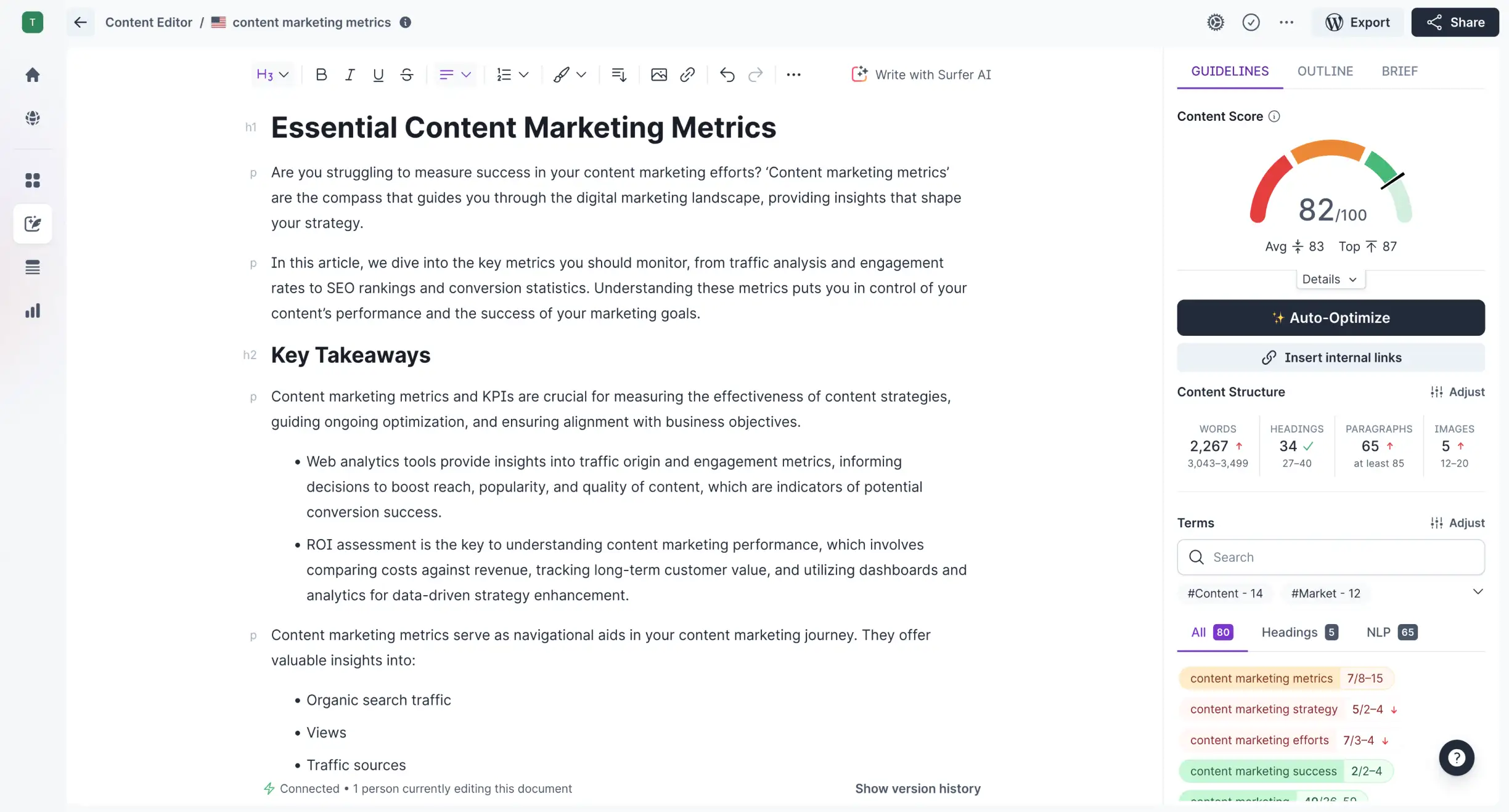
Surfer SEO is a data-driven tool designed to optimize content for search engines. It’s perfect for content creators and marketers who want to focus on improving their on-page SEO and content rankings.
Features:
- SERP analyzer and keyword recommendations
- Content editor and content score optimization
- On-page SEO audit and suggestions
- Keyword research and competitive analysis
- Excellent for content optimization and on-page SEO
- Provides data-driven insights for content creators
- Clear and easy-to-follow content recommendations
- Focuses mainly on on-page SEO, lacking some off-page tools like backlink tracking
- May not be suitable for large-scale site audits
Pricing:
- Essential: $99/Month
- Scale: $219/Month
- Enterprise: Contact Sales
Ideal For:
Content marketers and businesses looking to improve content ranking and on-page SEO for specific keywords.
 Pro Tip
Pro Tip
When using SEO tools like SEMrush, Ahrefs, or Moz Pro, regularly monitor your website’s technical health, such as page speed and mobile usability. Tools like Google Search Console and SEMrush can give you actionable insights into potential technical issues, which can significantly impact your site's rankings. Fixing these issues promptly ensures smoother user experiences and better SEO performance.
Who Should Use SEO Tools?
1. Beginners
If you’re just starting with SEO, tools like Moz Pro and Google Search Console offer great beginner-friendly interfaces, tutorials, and easy-to-understand reports that will help you get started on the right foot.
2. Intermediate Users
For those who have some experience but want to dive deeper into data analysis, tools like SEMrush and Ahrefs offer advanced features such as backlink tracking, keyword research, and competitive analysis.
3. Advanced SEO Professionals
Experienced professionals will benefit from tools like Ahrefs, SEMrush, and Surfer SEO, which provide a comprehensive set of features for fine-tuning strategies and analyzing every aspect of SEO performance.
4. Industries That Benefit
- eCommerce: SEO tools help optimize product pages and track keywords for better visibility in search engines.
- Bloggers: SEO tools like Surfer SEO help bloggers create optimized content and increase traffic.
- Agencies: Agencies managing multiple clients will benefit from all-in-one SEO tools like SEMrush or Ahrefs for in-depth analysis and reporting.
How We Analyzed These SEO Tools
Choosing the best SEO tools isn’t just about popularity—it’s about finding the right fit for your needs. To ensure our recommendations are accurate and reliable, we took a comprehensive approach to evaluate these tools. Here’s how we did it:
1. Hands-On Testing by Our R&D Team:
Our dedicated Research and Development (R&D) team rigorously tested each tool to assess its performance, features, and usability. By using these tools in real-world scenarios, we gained firsthand insights into their strengths and weaknesses. This hands-on approach allowed us to evaluate how well each tool delivers on its promises and whether it aligns with the needs of different users.
2. External References and Reviews:
To ensure objectivity, we also analyzed reviews and ratings from major listing sites like G2, Capterra, and Trustpilot. These platforms provide valuable feedback from actual users, helping us understand how these tools perform in diverse environments. By combining our internal testing with external perspectives, we were able to create a well-rounded evaluation.
3. Evaluation Criteria:
We assessed each tool based on the following criteria:
- Features: Does the tool offer comprehensive functionalities like keyword research, backlink analysis, and site audits?
- User Experience: Is the interface intuitive and easy to navigate?
- Customer Support: Does the provider offer reliable support and resources?
- Pricing: Is the tool affordable and does it provide value for money?
- Integration: Can it seamlessly integrate with other platforms like Google Analytics or CMS systems
4. Why These 7 Tools Were Selected:
After thorough analysis, we selected these 7 tools because they consistently outperformed others in terms of features, usability, and customer satisfaction. They are also well-suited to meet the demands of the evolving SEO landscape , making them future-proof investments for businesses of all sizes.
By combining our R&D team’s expertise with insights from trusted external sources, we’ve curated a list of the best SEO tools that cater to a wide range of needs and budgets. Whether you’re a beginner or an advanced SEO professional, these tools are designed to help you achieve your digital marketing goals.
What Features to Look for in SEO Tools?
When selecting an SEO tool, consider these essential features to ensure it meets your needs:
- Keyword Research: Look for tools that help you discover high-traffic keywords, track their rankings, and analyze search intent to improve content visibility.
- Backlink Analysis: Choose tools that allow you to monitor your backlinks, assess their quality, and explore competitor backlinks for link-building opportunities.
- Site Auditing: A good SEO tool should identify technical issues like broken links, slow page speeds, and mobile optimization problems that can impact your rankings.
- Ease of Use: Select tools with an intuitive, user-friendly interface that makes it easy to manage your SEO tasks, even if you’re a beginner.
- Integration and Reporting: Ensure the tool integrates with platforms like Google Analytics and offers customizable reporting, so you can track performance and make data-driven decisions.
How to Choose the Right SEO Tools Based on Your Needs
To choose the right SEO tool, align it with your goals, budget, and team expertise. Test tools through trials and ensure they integrate well with other platforms as your business scales and follow this steps to narrow down your option:
- Understand Your Goal: Identify your focus—content optimization, backlink building, or technical SEO. Different tools specialize in different areas, so choose one that matches your specific needs.
- Evaluate Your Budget: Decide between free tools (e.g., Google Search Console) for basic needs or premium tools (e.g., SEMrush, Ahrefs) for advanced features and larger businesses.
- Test Before You Commit: Take advantage of free trials or demos to test multiple tools. Evaluate which one aligns best with your workflow and goals before making a long-term commitment.
- Consider Your Team Size and Expertise: Select tools based on your team’s experience. Beginners may prefer user-friendly tools like Moz Pro, while advanced teams may benefit from complex tools like Ahrefs.
- Check Integrations and Scalability: Ensure the tool integrates with platforms like Google Analytics or your CMS. Also, choose one that can scale with your business as your SEO needs grow.
 Expert Advice
Expert Advice
Focus on building a comprehensive SEO strategy that includes keyword research, on-page optimization, and backlink analysis. Tools like Ahrefs and LinkWhisper are great for automating internal linking and improving site structure, while SEMrush offers in-depth competitor analysis to fine-tune your strategy. Integrate multiple tools for a holistic approach to SEO that stays adaptable to algorithm changes.
Conclusion
The best SEO tools in 2025, like SEMrush, Ahrefs, and Surfer SEO, are essential for optimizing websites, tracking performance, and staying competitive. Whether you’re a beginner or an expert, choosing the right tool depends on your goals, budget, and needs. By leveraging these tools and staying updated with SEO trends, you can improve search rankings, drive organic traffic, and achieve long-term success. Equip yourself with the right tools and take your digital marketing to the next level!
FAQs
1. What is the most successful customer SEO tool?
SEMrush is widely regarded as one of the most successful SEO tools, trusted by businesses for its comprehensive feature set and accurate data.
2. Can SEO tools guarantee top rankings on Google?
While SEO tools offer valuable insights and help optimize strategies, no tool can guarantee top rankings due to the unpredictable nature of search algorithms.
3. Are free SEO tools effective?
Free SEO tools can be effective for basic tasks, but premium tools often provide more in-depth features and more accurate data.
4. How much should I invest in SEO tools?
Your investment in SEO tools depends on your business goals. Small businesses can start with budget-friendly options like SE Ranking, while larger enterprises might benefit from SEMrush or Ahrefs.
5. How often should I update my SEO tools or strategies?
SEO is a constantly evolving field. Reassess your SEO tools and strategies every 6–12 months to stay competitive.
